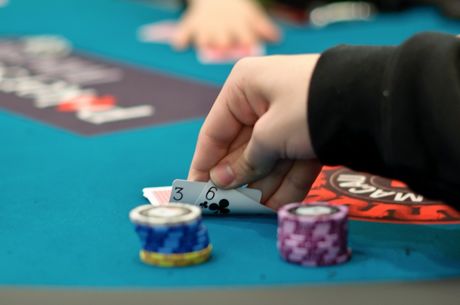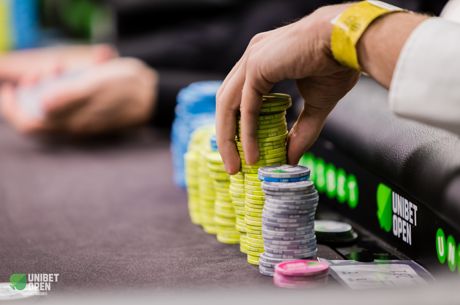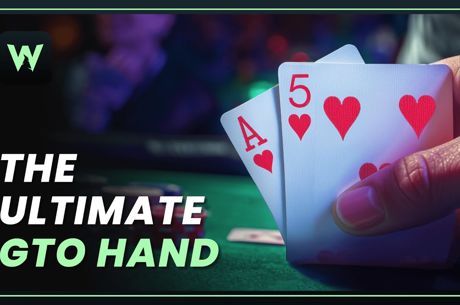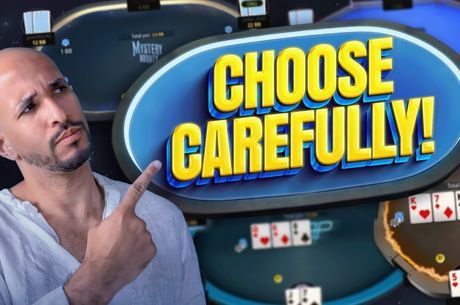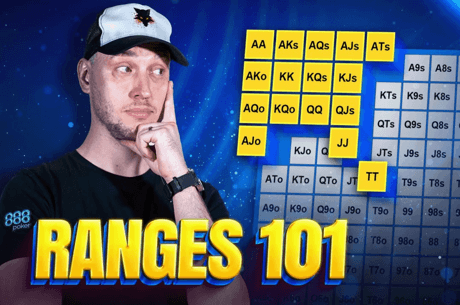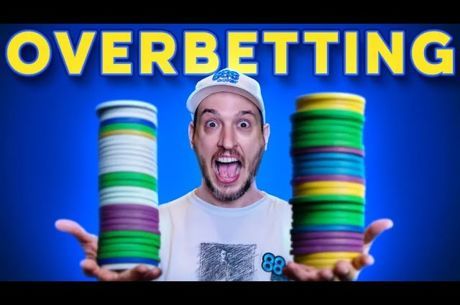'There is a Figure, an Exact Figure': The Problem of Value Bet Sizing

I'm just home from a week in Las Vegas — my first trip back since moving from there to North Carolina almost four years ago.
Through my local tavern poker club, I had won entry into two tournaments at the "World Tavern Poker Open" at the Orleans Hotel and Casino, the semi-annual series at which they crown their national champions. A week of doing pretty much nothing but poker resulted in some observations and stories that I'll turn into my next few articles for PokerNews.
One tournament hand gave me a dilemma that reminded me of an episode of the great sitcom Taxi from the late 1970s to early 1980s. The episode is titled "Cooking for Two" and in fact was co-written by the poker player and friend of the poker community, Sam Simon, who sadly passed last year.
In the episode, Jim Ignatowski (Christopher Lloyd) accidentally burns up Louie De Palma's (Danny DeVito) apartment and everything in it. But Jim's millionaire father is willing to make good on the damages. He writes Louie a blank check, with the instruction to fill it out for whatever amount he feels is fair compensation.

The greedy Louie is tormented by the problem of what dollar amount to write on the check, which he wants to be as big as will be accepted. In other words, he dismisses the laughable (to him) suggestion that he make it merely for the actual amount of his losses.
"If I fill this check out for a million bucks, his dad would never cover it. But there is a figure, an exact figure, one big enough so that he'll go, 'brrrrrrr' [shudders], but not so big that he won't say, 'ehhhhhh' [shrugging dismissively]." (Sorry for the vagueness. It's all conveyed with voice tone and body language.)
After much hand-wringing, Louie finally settles on $29,542. Jim calls his father, who okays the amount. Louie is at first ecstatic at his windfall, but then nearly has a heart attack when Jim relays the news that his father had been expecting — and prepared to pay — a figure of about $200,000.
I feel Louie's conundrum every time I hold what is clearly the best hand against an opponent who is showing an inclination to call a river bet: What is the very most I can extract from him? I don't want to leave money on the table that he would have given me, but I also don't want to make the amount so big that he just folds, leaving me with no further profit.
This situation came up in one of the tournaments I played last week. We were in the first level. Both my opponent and I had essentially our starting stacks of 150 big blinds. I raised preflop on the button with A♠K♠, and he called after having limped.
The flop was a lovely 6♠7♠10♠. I immediately decided that I simply was not going to worry about the slim possibility of the villain holding 9♠8♠ for the straight flush — if he did, I was going to lose all my chips, and there was nothing I could do about it. I might have to put on the brakes if the board paired or if either the 8♠ or 9♠ came, but other than that, I was going to try to go for maximum value.
He donk-bet into me on the flop. I raised and he called. Surprisingly, he bet into me again on the 2♣ turn. Again I raised, and again he called. And then for the third time he bet on the 9♦ river.
Of course I was going to raise. But how much? He probably had either a small flush or a flopped set, possibly a straight. At this point, I didn't need to distinguish between these possibilities, because his willingness to call with any of them would be approximately the same, and it would be purely contingent on him not believing that I was lucky enough to have flopped the nut flush.
At one end of the spectrum, I could go for a min-raise, and he would almost surely call, given this betting pattern. At the top end, I could go all in. Would he call off every last chip in his stack? I had my doubts.
Here was my thinking, which was intensely specific to the exact circumstances of the hand.
All of the players here were used to playing in freerolls at their local tavern poker clubs, earning points that over the course of a season could qualify them for the national finals. This championship event cost $135 to enter. I've played more tournaments at that range of buy-in than I can count, but for a large percentage of this week's participants, that could well be the most they had ever paid to play. My feeling was that this would make such a player reticent to make a call that could end his tournament less than 20 minutes into it.
With that in mind, I bet an amount that, if he called and lost, would leave him with about 30 big blinds — enough that he could still have some decent play left. I thought that the increased probability of a call with that lesser raise was worth the possible loss of value over going for the whole ball of wax.
And he did call. He mucked his cards without showing after he saw my hand.
Now, maybe I was wrong. Maybe the all-in overbet would have won me even more. Some players will read such a bet as a desperation measure with a weak hand (e.g., just an overpair) or even a pure bluff, and will call as a result.
Still other players are just constitutionally incapable of folding once they've made two pair, a set, a straight, or a baby flush, even when the board and the betting pattern are screaming at them that their hand is no good. That is especially true with the kind of relatively inexperienced players one encounters in pub poker events. So I hold open the possibility that the reasoning I like to think of as keen situational awareness was, in reality, completely off the mark.
I've often heard the winner in such situations ask the loser point-blank: "What's the most you would have called?" I would never answer such a question — at least not honestly — because it's just blatantly saying, "Tell me how I can beat you better next time." I think it's kind of rude to ask that, so I don't. But it means that, as with so much else in poker, I'm left forever not knowing whether I played it right.
Perhaps, though, that's better than finding out — like poor Louie — the hard truth that I didn't get all that I could have.
Robert Woolley lives in Asheville, NC. He spent several years in Las Vegas and chronicled his life in poker on the "" blog.
Photo (Taxi): .

